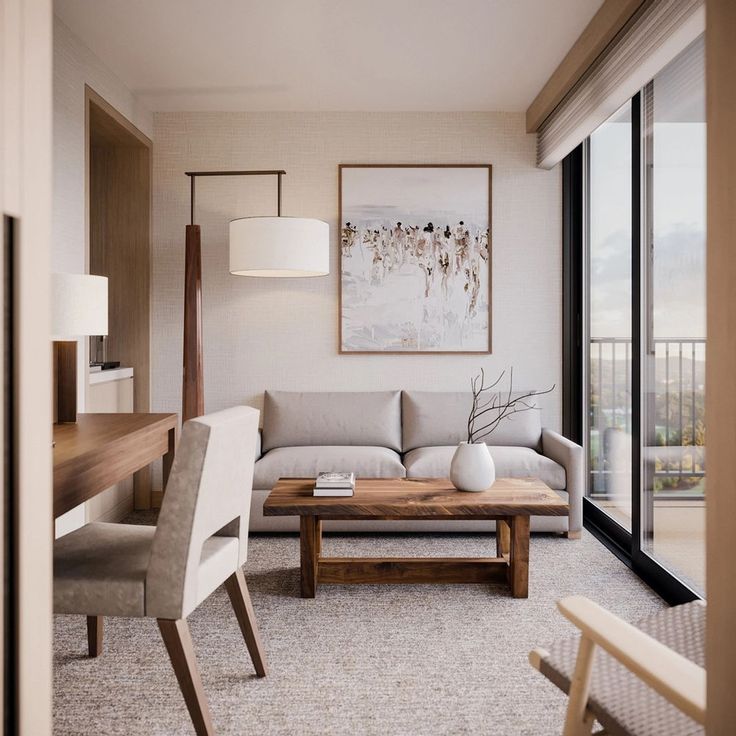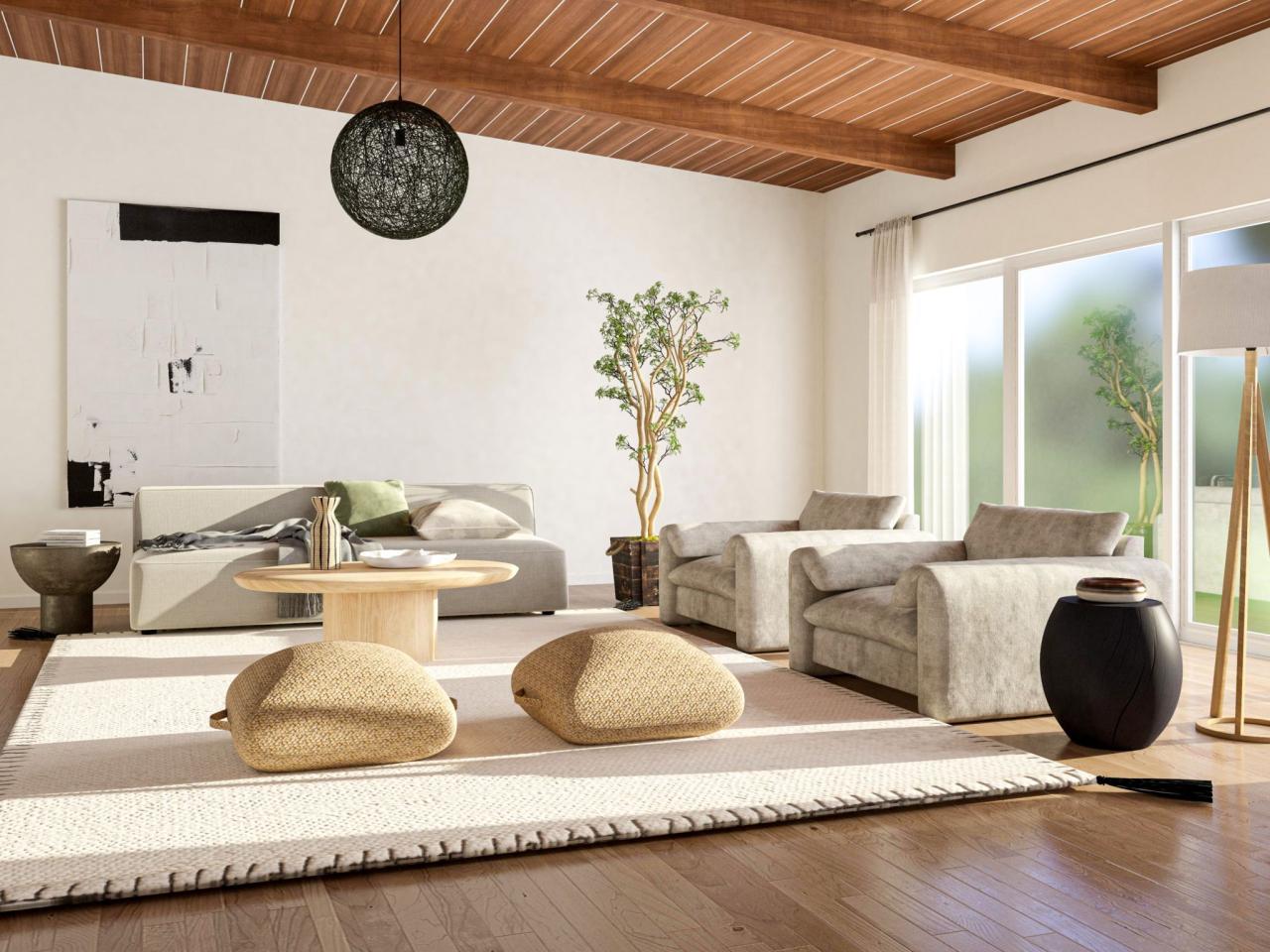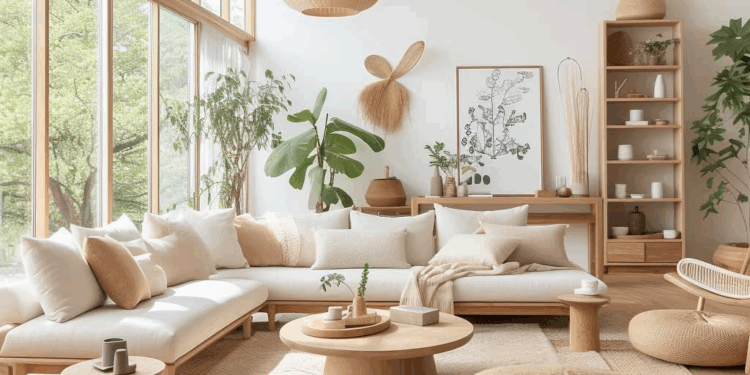Japandi design, a unique fusion of Japanese minimalism and Scandinavian functionality, has steadily gained international recognition in recent years. This distinctive style marries the sleek, uncluttered aesthetics of Japan with the warmth and coziness of Scandinavian interiors, resulting in a harmonious balance that appeals to homeowners and designers around the globe.
Japandi: A Perfect Blend
The term “Japandi” is a combination of “Japanese” and “Scandi” (short for Scandinavian). While both cultures emphasize simplicity and intentional living, their approaches differ slightly. Japanese design focuses on wabi-sabi, the beauty found in imperfection and transience, while Scandinavian style highlights hygge, a concept of coziness and comfort.
By blending these two philosophies, Japandi creates a space that feels serene yet inviting. This hybrid style celebrates craftsmanship, natural materials, and functionality without sacrificing warmth or beauty.
Key Elements of Japandi Interiors
To achieve a Japandi-inspired interior, several core principles must be incorporated:
A. Neutral Color Palette
Japandi design relies on subdued, earthy tones such as beige, soft whites, taupe, and muted grays. These colors provide a calming backdrop that enhances natural light and emphasizes simplicity.
B. Natural Materials
Wood, bamboo, rattan, and stone play a pivotal role in Japandi interiors. These organic materials introduce texture and warmth, grounding the minimalist aesthetic with a touch of nature.
C. Functional Furniture
Furniture in Japandi spaces prioritizes practicality and clean lines. Pieces are often low-profile, handcrafted, and multi-functional, ensuring they serve a purpose without overwhelming the room.
D. Clutter-Free Environment
Decluttering is essential in Japandi. Only meaningful and necessary items are displayed, while unnecessary decor is eliminated to maintain visual clarity and tranquility.
E. Textural Contrast
Layering different textures adds depth and interest without breaking the minimalist ethos. A linen throw over a wooden chair or a ceramic vase on a stone table are subtle ways to achieve this contrast.
F. Indoor-Outdoor Harmony
Japandi blurs the line between interior and exterior by incorporating greenery, natural light, and materials that echo the outdoors, creating a seamless connection with nature.
Why Japandi Resonates Globally
The global rise of Japandi can be attributed to several factors:
A. Desire for Simplicity
In a world overwhelmed by digital clutter and fast-paced lifestyles, people are drawn to spaces that promote calmness and simplicity. Japandi offers a sanctuary from chaos.
B. Sustainability Trends
With growing awareness of environmental issues, Japandi’s emphasis on sustainable materials and longevity appeals to eco-conscious consumers.
C. Cross-Cultural Appeal
The merging of two well-loved design cultures broadens Japandi’s appeal. It feels both familiar and refreshing to diverse audiences.
D. Social Media Influence
Platforms like Instagram and Pinterest have amplified the popularity of Japandi by showcasing its aesthetic beauty, inspiring homeowners to adopt similar designs.
How to Embrace Japandi in Your Home
Adopting Japandi doesn’t require a complete overhaul. Here are practical steps to infuse your home with Japandi charm:
A. Start with Decluttering
Remove unnecessary items and focus on keeping only what serves a purpose or holds sentimental value.
B. Invest in Quality Over Quantity
Choose well-crafted furniture and decor pieces that will stand the test of time rather than chasing fleeting trends.
C. Use Neutral Colors as a Base
Paint walls and large surfaces in soft, neutral shades to establish a calm and cohesive backdrop.
D. Incorporate Natural Elements
Introduce wooden furniture, linen curtains, jute rugs, or stoneware accessories to echo natural textures.
E. Balance Minimalism with Warmth
Layer cozy textiles like wool throws or cotton cushions to prevent the space from feeling too stark.
F. Add Greenery Thoughtfully
Place a few potted plants or small indoor trees to connect the interior with nature, enhancing tranquility.
G. Embrace Imperfection
Choose handmade ceramics, imperfect wood grains, or aged metals that celebrate uniqueness and craftsmanship.
Common Mistakes to Avoid in Japandi Design

Even though Japandi emphasizes simplicity, it’s easy to stray from its core principles. Be mindful of these common pitfalls:
A. Overusing Decorative Accents
Too many accessories can clutter the space. Stick to a few impactful pieces.
B. Ignoring Practicality
While aesthetics matter, functionality is key. Every item should serve a purpose.
C. Choosing Cold Tones
Avoid overly stark or sterile whites that make the space feel cold. Opt for warm neutrals instead.
D. Neglecting Texture
Minimalism doesn’t mean flatness. Incorporate varied textures to keep the design visually interesting.
Japandi Beyond Interiors
Japandi is not limited to home decor; it extends into lifestyle choices:
A. Mindful Consumption
Purchasing fewer, better-quality items aligns with Japandi’s ethos of intentional living.
B. Sustainable Practices
Embracing sustainability through natural, recyclable materials mirrors Japandi’s respect for nature.
C. Slowing Down
Adopting Japandi often leads to a slower, more mindful approach to daily routines.
The Future of Japandi Style

As interior design continues evolving, Japandi is expected to remain relevant due to its adaptability and timeless appeal. Designers are experimenting with subtle variations, such as combining darker woods or adding pops of muted colors, to refresh the aesthetic without straying from its roots.
In commercial spaces, from boutique hotels to cozy cafes, Japandi is influencing layouts and atmospheres, proving its versatility beyond residential design. Its blend of minimalism and warmth creates environments that are welcoming yet sophisticated.
Japandi’s global popularity is no coincidence. It reflects a growing yearning for balance, mindfulness, and sustainable beauty in our surroundings. By thoughtfully blending Japanese and Scandinavian influences, this design style offers a pathway to creating spaces that nourish both the eye and the soul.
Whether you’re redesigning a single room or embracing Japandi throughout your home, its timeless principles will guide you toward an environment that feels peaceful, functional, and deeply connected to nature.










